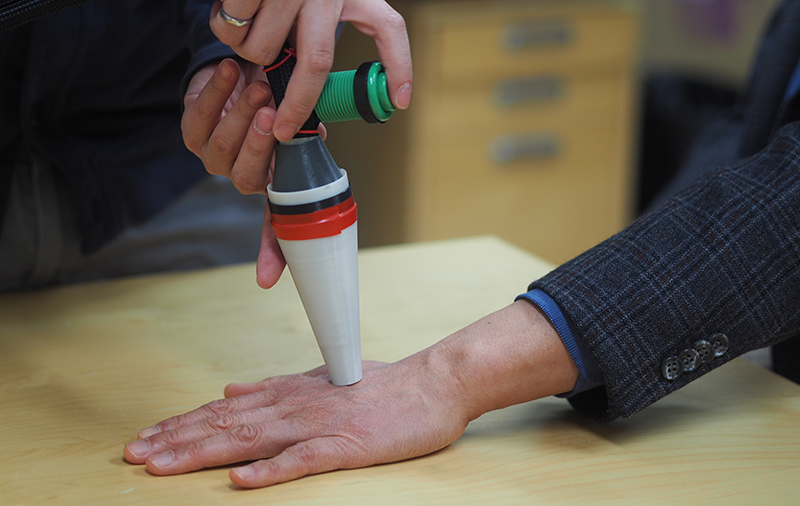Melanoma is the deadliest form of skin cancer, affecting more than 130,000 people worldwide each year. Although this cancer is easily visible on the skin, it is hard to differentiate between harmless and harmful moles. Researchers at the University of British Columbia have now developed a simple and compact device that uses laser to can distinguish between harmless moles and cancerous ones – in a matter of seconds.
Related Breakthrough Microfluidic Device Detects Cancer Faster and Less Invasively
“With skin cancer, there’s a saying that if you can spot it you can stop it – and that’s exactly what this probe is designed to do,” said researcher Daniel Louie, a PhD student who constructed the device as part of his studies in biomedical engineering at the University of British Columbia. “We set out to develop this technology using inexpensive materials, so the final device would be easy to manufacture and widely used as a preliminary screening tool for skin cancer.”
The probe works on the principle that light waves change as they pass through objects. The researchers aimed a laser into skin tissue from volunteer patients and studied the changes that occurred to this light beam, reports UBC.

“Because cancer cells are denser, larger and more irregularly shaped than normal cells, they cause distinctive scattering in the light waves as they pass through,” said Louie. “We were able to invent a novel way to interpret these patterns instantaneously.”
What makes this new device different from other imaging devices for cancer detection is that it doesn’t require expensive lenses or cameras, and it can provide a more easily interpreted numerical result like those of a thermometer.
Related This UV Sensor Can Optimize Phototherapy and Reduce Skin Cancer Risk
The researchers have already conducted a study with 47 volunteers at the Vancouver General Hospital Skin Care Centre, and a total of 69 lesions, and the results were promising. For their next steps, the researchers hope to eventually achieve Health Canada certification and approval before being able to offer this testing through health professionals.












